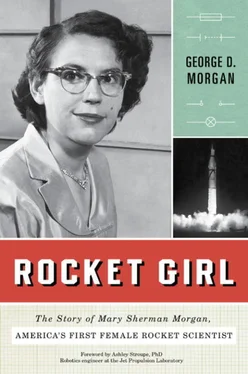I nod my head.
My father looks left and right, making sure there’s no one else around who will hear the secret. He holds up a ball, and whispers.
“Keep your eye on the ball.”
He takes ten steps back, and pitches me the ball. I keep my eye on it, and swing the bat. The round bat connects with the round ball, and the little white orb goes sailing over our backyard fence. It hits the roof of the Velkers’ home, knocking off one of their roof tiles. It bounces once and plops into their chimney. My dad turns and looks at me.
“Good. Now do it again.”
Somewhere around the time I turned ten years old, the bat disappeared. God only knows what happened to it.
“Oh yeah, Mr. Kanarek. I got it. Thank you.”
“You’re welcome.”
I set up an appointment to meet with Irving in Costa Mesa the following weekend. I thank him for his willingness to help with my project, and hang up the phone. For the rest of the day I can’t help but have a recurring thought: The man who defended Charles Manson and the Onion Field killers gave me my very first birthday present.
6.
“MOTHER DOES NOT ABIDE PHOTOGRAPHY”
In early 1935 Willy Ley, a young journalist, German rocketeer, and close friend of Wernher von Braun, convinced his supervisors in the Foreign Office to sponsor him on a journalism assignment to the United States. What Willy conveniently neglected to tell his supervisors was that he was secretly planning to permanently immigrate to America. The requisition for a “paid journalism assignment” was nothing more than a clever ruse designed to get Germany to pay for his escape. [1] Michael J. Neufeld, Von Braun: Dreamer of Space, Engineer of War (New York: Vintage Books, 2007), p. 70.
As a journalist, Willy Ley was more aware than most Germans of the sinister side of Adolf Hitler’s rise to power. [2] Ibid. and Bob Ward, Dr. Space: The Life of Wernher von Braun (Annapolis, MD: Naval Institute Press, 2005), p. 19.
He knew Hitler had murdered dozens of his enemies, and he suspected he would stop at nothing to become an all-powerful dictator. Ley was also aware of Hitler’s quiet campaign to burn the Treaty of Versailles and remilitarize Germany. One of the most blatant violations of that campaign was the covert creation of a massive air force, what would come to be known as the Luftwaffe. [3] Unlike rockets, fighter aircraft were forbidden under the Versailles Treaty. Neufeld, Von Braun , p. 74.
Willy Ley could smell another war coming and decided it was best to leave the country while the borders were still open. So it was that one cold morning in February Willy shared a beer with his good friend Wernher, exchanged a few warm good-bye hugs, shouldered his duffel bag, then boarded a steamer bound for New York. Neither of them could surmise the chain of events that, in a very short ten years, would result in Wernher following his friend across the Atlantic. [4] Project Paperclip. Ward, Dr. Space , p. 59.
For now, there was far too much action to keep Wernher firmly rooted in Germany—flying a rocket to the moon was his unyielding dream, and real progress on that dream was being made. The work of the German rocket boys was attracting attention—the kind of attention that writes checks. The previous December, the youthful von Braun crew had flown two of their most sophisticated rockets as a private demonstration for a group of army officers. Dubbed Max and Moritz, after a couple of kids in a popular German cartoon, the rockets broke all previous altitude records and made a significant impression on the visiting dignitaries. [5] Neufeld, Von Braun , p. 71.
Since rockets had not been included in the Versailles Treaty as one of the verboten weapons, it left a major loophole the German army was only too happy to jump through. [6] Ward, Dr. Space , p. 17.
Army generals and colonels began keeping a close eye on Wernher von Braun and his experimenting associates. Money had been flowing into the military like the Rhine River during spring runoff, and new technologies were given special funding priority. Any weapon that did not exist prior to June 28, 1919, was not a part of the Versailles Treaty and was therefore technically exempt. Von Braun and a small team of budding engineers were given a modest annual budget of 80,000 marks for research and development.
Such financial modesty did not last long, however, as it was soon overshadowed by the potent vanity of unlimited funding. In March 1936, the army’s commander in chief, General Feiherr von Fritsh, wanted to see what his 80,000 marks was buying. He decided to pay a visit to the Kummersdorf—the remote location von Braun and his engineers had moved to after the police-station incident. What the general saw immediately impressed him. His exact words to von Braun were, “How much do you want?” [7] Neufeld, Von Braun , pp. 74, 81.
After carloads of military money began arriving at the Kummersdorf, and hundreds of engineers, technicians, and clerks began to join the newfound payroll bandwagon, Wernher wrote a letter to his parents. In it he made a report of his recent successes, then he closed the letter with a simple observation, “As the Americans say, we have made it to the big time.”
It was August 2007.
I took a felt pen and addressed the two 9 × 13 manila envelopes, one to the theatre department at the Massachusetts Institute of Technology (MIT), the other to the same department at the California Institute of Technology (Caltech) in Pasadena. These were the top two engineering schools in the country, both of which I had applied to (and rightfully been turned down by) during my senior year in high school back in 1971. Each envelope contained a copy of the just-completed play about my mother. As is common with many writers and their projects, the play was easier to write than the title. I struggled with a number of alternatives, and wished many times I had thought of The Girl Who Played with Fire before Stieg Larsson had used it. Every title candidate I considered was too esoteric, too weird, or just too simple. In the end I settled for simple, and titled the play Rocket Girl . Those two words, I decided, would not win any titling awards on Broadway, but they said it all.
The play had taken me a year to research and write, and now the time had come to place the messages in the bottles and toss them into the deep, wide ocean. I applied my DNA to the envelope seals, closed them, affixed the proper postage, then handed them over to the US Postal Service.
Based on a thousand past writing-submission experiences, I expected to wait at least six months for a reply.
Four days later, I received a letter with from some organization calling itself TACIT. I had no idea what TACIT was, but the return address was in Pasadena. I ripped open the envelope. Inside was a one-page letter from Shirley Marneus, the theatre director at Caltech. TACIT, it turned out, stood for Theatre Arts at the California Institute of Technology.
Shirley Marneus was a well-known institution, having directed thousands of Caltech actors over a thirty-five-year career. In her letter she expressed enthusiasm for bringing Rocket Girl to Caltech. Her exact words were, “Your play and this school are a match made in heaven.” I mentioned how timing was important; the following year would be the fiftieth anniversary of the launch of America’s first satellite, Explorer 1 , and if at all possible I wanted the play to commemorate that event by having its premiere before the end of 2008. She assured me that was within their capabilities.
Читать дальше













